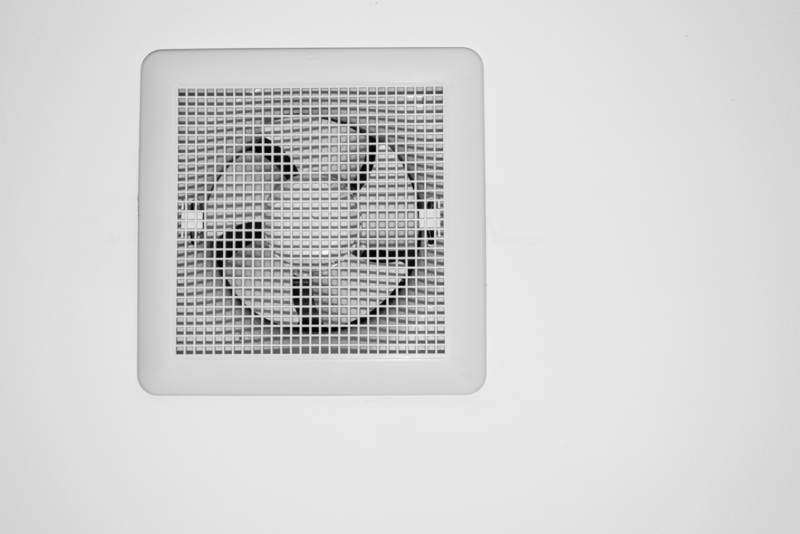Breathing Easy: The Significance of Air Quality in Daily Spaces
Posted on 30/05/2025
Breathing Easy: The Significance of Air Quality in Daily Spaces
Have you ever paused to consider the quality of the air you breathe every day? From cozy living rooms to bustling workspaces and invigorating gyms, air quality in daily spaces can dramatically impact your health, comfort, and productivity. While we often focus on nutritious food and clean water for well-being, the air all around us is just as vital -- yet easily overlooked. This comprehensive article explores why air quality is essential in our everyday environments, the factors that influence it, and actionable steps to ensure you and your loved ones are always breathing easy.
Understanding Air Quality: What Does It Really Mean?
Definition of Air Quality
Air quality refers to the cleanliness and safety of the air within our immediate environments. Typically, good air quality means the air is free from harmful pollutants, allergens, and irritants. The concept covers not only outdoor air but also indoor air quality (IAQ), which is just as, if not more, critical due to the amount of time people spend inside.
Main Pollutants Affecting Daily Spaces
Everyday air can be affected by both natural and man-made contaminants. Here are some common pollutants that influence air quality in everyday places:
- Particulate Matter (PM2.5 & PM10): Tiny particles from dust, combustion, and even cooking that can enter the lungs and bloodstream.
- Volatile Organic Compounds (VOCs): Chemicals released from paints, cleaning products, and furnishings that evaporate into the air.
- Carbon Dioxide (CO2): High concentrations in poorly ventilated areas reduce oxygen flow and cause fatigue.
- Mold & Mildew Spores: Fungi that thrive in humid conditions, leading to respiratory issues.
- Pet Dander & Pollen: Common allergens that can trigger sneezing and asthma attacks.
- Secondhand Smoke: Harmful chemicals from tobacco can linger in the air, even after the source is gone.

Why Is Air Quality Vital in Everyday Life?
Health Implications of Poor Air Quality
Clean air is foundational to a healthy life. When indoor and outdoor air quality is compromised, there is a direct impact on physical and mental well-being. Prolonged exposure to poor air quality in daily spaces can result in:
- Respiratory Issues: Asthma, bronchitis, allergies, and other chronic respiratory conditions.
- Cardiovascular Problems: Air pollutants can increase the risk of heart disease and high blood pressure.
- Weakened Immune System: Constant exposure to allergens and toxins hinders the body's natural defenses.
- Reduced Productivity: Headaches, drowsiness, and lack of concentration due to insufficient oxygen or high pollutant levels.
- Impact on Children & Elderly: Sensitive age groups are more susceptible to the dangers of poor air quality.
Comfort and Quality of Life
Beyond health, good indoor air quality influences comfort, mood, and even social behavior. Fresh, clean air makes spaces more pleasant, stimulates clear thinking, and supports restful sleep.
Economic and Environmental Considerations
Poor air quality doesn't just affect individuals -- it can also have a financial impact through increased medical bills, reduced productivity, and more frequent maintenance of HVAC (heating, ventilation, and air conditioning) systems. Furthermore, addressing air pollution can contribute to a healthier environment for all.
Factors Influencing Air Quality in Daily Spaces
Indoor Air Quality: Hidden Hazards
According to the Environmental Protection Agency (EPA), indoor air can sometimes be more polluted than outdoor air. Several factors influence this, including:
- Ventilation: Insufficient airflow traps pollutants inside, leading to stuffy, unhealthy environments.
- Household Products: Many conventional cleaners, sprays, and aerosol products release VOCs that degrade air quality.
- Building Materials: Carpets, paints, adhesives, and furniture can emit gases long after installation (off-gassing).
- Moisture Issues: Leaks and high humidity promote mold and mildew growth.
- Personal Activities: Cooking, smoking, and burning candles increase particulate matter and chemical pollutants.
Outdoor Air Quality and Its Impact Indoors
Even if you keep your indoor environment spotless, outdoor air can seep in, bringing pollutants from vehicle exhaust, industrial emissions, agriculture, and wildfires. This means that controlling air quality is a continuous process both inside and outside.
Common Spaces Where Air Quality Matters Most
Homes and Apartments
Your home should be your sanctuary, but it can host a variety of pollutants. From dust mites in bedding to pet dander on carpets, keeping clean air quality in homes is essential for restful sleep and overall health.
Workplaces
Stale air, high carbon dioxide levels, and chemical fumes from office supplies can seriously hamper your focus and productivity. Workplace air quality is linked to cognitive performance, absenteeism, and even job satisfaction.
Schools and Educational Facilities
Children are especially vulnerable to airborne contaminants. Prioritizing clean air in schools enhances students' concentration and academic performance, while also reducing sick days.
Gyms and Fitness Centers
With increased respiration and perspiration, gym-goers are more at risk from airborne irritants. Good indoor air quality in fitness areas ensures workouts support, rather than harm, health.
Hospitals and Healthcare Settings
Patients often have weakened immune systems, making hospital air quality critical for both recovery and infection prevention.
How to Monitor and Improve Air Quality: Simple Actionable Solutions
Best Practices for Boosting Indoor Air
- Regular Ventilation: Open windows and use exhaust fans to promote fresh airflow, especially after cooking or using strong cleaning products.
- Houseplants as Natural Air Purifiers: Spider plants, snake plants, and peace lilies help absorb common pollutants and release clean oxygen.
- Control Moisture: Use dehumidifiers, repair leaks promptly, and ensure bathrooms and kitchens are well-ventilated to reduce mold.
- Use Air Purifiers: High-efficiency particulate air (HEPA) filters capture dust, pollen, and even viruses.
- Minimize Chemical Use: Opt for unscented and environmentally friendly cleaning products to reduce VOC emissions.
- Regular Cleaning: Vacuum carpets and mop floors regularly to reduce dust, pet dander, and dirt.
- Check HVAC Filters: Replace or clean filters as recommended to keep your system running efficiently and pollutant-free.
Technological Solutions for Modern Homes and Businesses
Modern technology offers innovative solutions to monitor and improve air quality. Consider these advancements:
- Smart Air Quality Monitors: These devices detect pollutant levels, such as PM2.5, CO2, and VOCs, offering real-time feedback and recommendations.
- UV-C Air Purifiers: Use ultraviolet light to eliminate bacteria, viruses, and mold spores from circulating air.
- IoT-Connected HVAC Systems: Automated systems maintain optimal airflow and indoor air quality while saving energy.
FAQs: Everything You Need to Know About Air Quality in Daily Spaces
1. How Often Should I Check My Indoor Air Quality?
It's recommended to use an air quality monitor or test periodically, especially if you notice symptoms like headaches, allergies, or musty odors. Seasonal checks can help you stay ahead of common issues such as pollen spikes in spring or increased heating in winter.
2. Do Air Purifiers Really Work?
Yes! Air purifiers, especially those equipped with HEPA filters, are highly effective at capturing a wide range of pollutants, including pollen, pet dander, dust mites, and even airborne viruses. Remember to choose a unit sized appropriately for your space.
3. Can Houseplants Improve Air Quality?
While houseplants like aloe vera and spider plants can help absorb certain toxins and produce fresh oxygen, they should be used as a complement--not a sole solution--to proper ventilation and filtration.
4. What are the Signs of Poor Air Quality?
- Frequent coughing or sneezing
- Headaches and fatigue
- Moldy or musty smells
- Condensation on windows
- Excessive dust accumulation
5. How Does Weather Influence Indoor Air Quality?
Weather events like wildfires, pollen seasons, or smog can worsen both outdoor and indoor air quality. In these circumstances, keeping windows closed and using air purifiers can help maintain clean air indoors.
6. Is Outdoor Air Always Cleaner Than Indoor Air?
Not necessarily! Research often shows that indoor air quality is 2-5 times more polluted than outdoor air. Proper ventilation, regular cleaning, and mindful lifestyle choices are crucial in all environments.

The Path Forward: Making Air Quality a Priority
Our day-to-day spaces -- homes, offices, schools, and public settings -- should be havens for health and happiness. Prioritizing air quality in your daily spaces is one of the most impactful choices you can make for your long-term well-being. With growing awareness, proactive habits, and the aid of modern technology, it's possible to enjoy cleaner, safer air -- every day, everywhere.
Quick Checklist for Cleaner Air
- Ensure regular ventilation and airflow in all rooms.
- Clean and replace air filters per manufacturer guidelines.
- Invest in a quality air purifier for sensitive individuals.
- Control indoor humidity and repair leaks quickly.
- Reduce the use of chemical-based cleaners and fragrances.
- Bring in houseplants for natural air purification.
- Monitor outdoor air quality before ventilating during high pollution events.
Conclusion: Embrace the Benefits of Breathing Easy
In our quest for healthier lifestyles, the significance of air quality in daily spaces cannot be overstated. By understanding the sources of indoor pollutants, recognizing signs of poor air, and implementing smart solutions, each of us can create a clean-air oasis -- at home, at work, at play.
Take control today. Make better air quality a non-negotiable standard in your life. After all, every breath should contribute to your vitality, clarity, and peace of mind. Breathe easy--your health, happiness, and productivity depend on it!
```Latest Posts
Pro Tips for Sparkling Clean Windows
Transform Your Home into an Odor-Free Sanctuary
Insider Techniques for Cleaning Your Car Like a Pro



